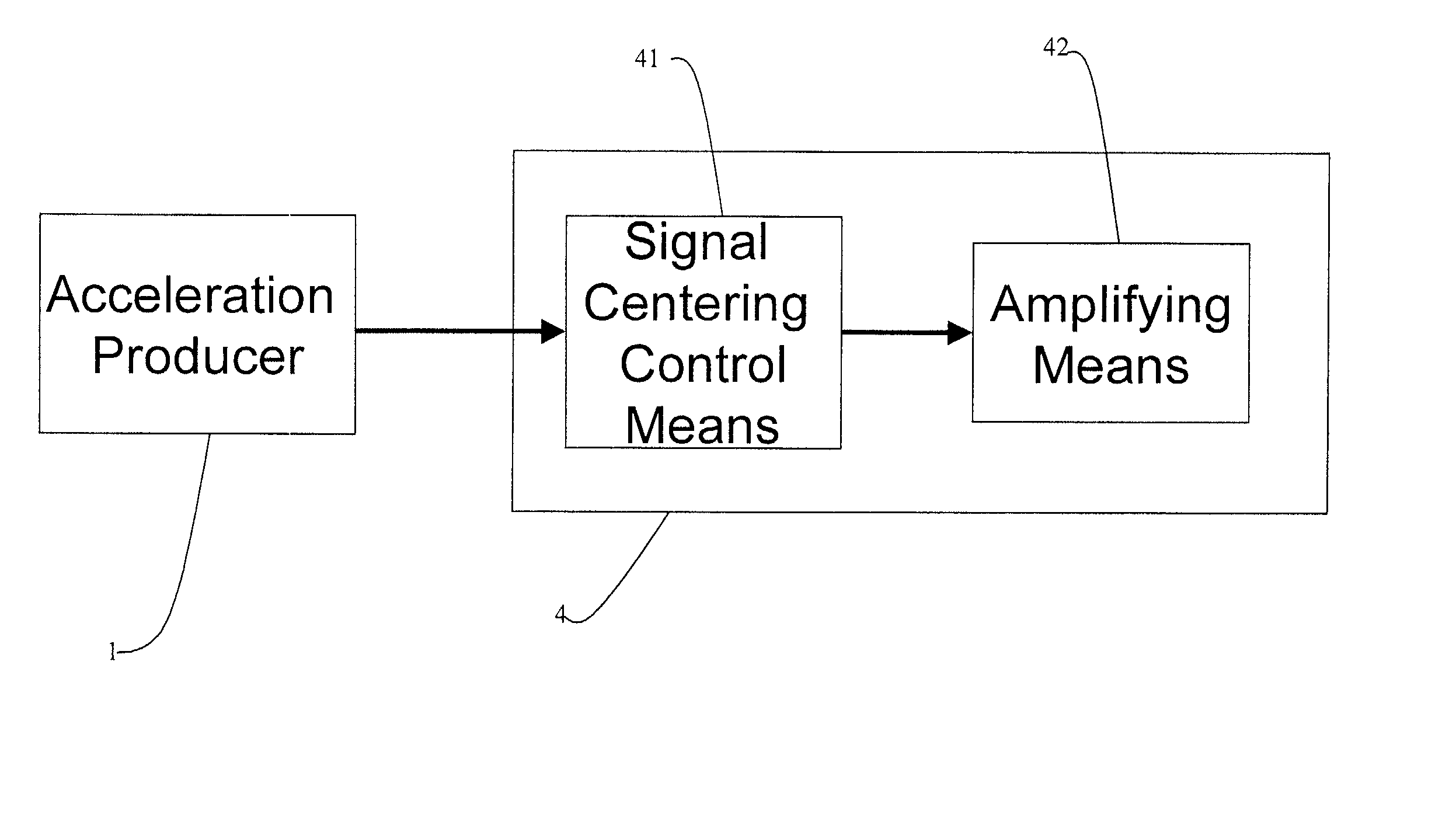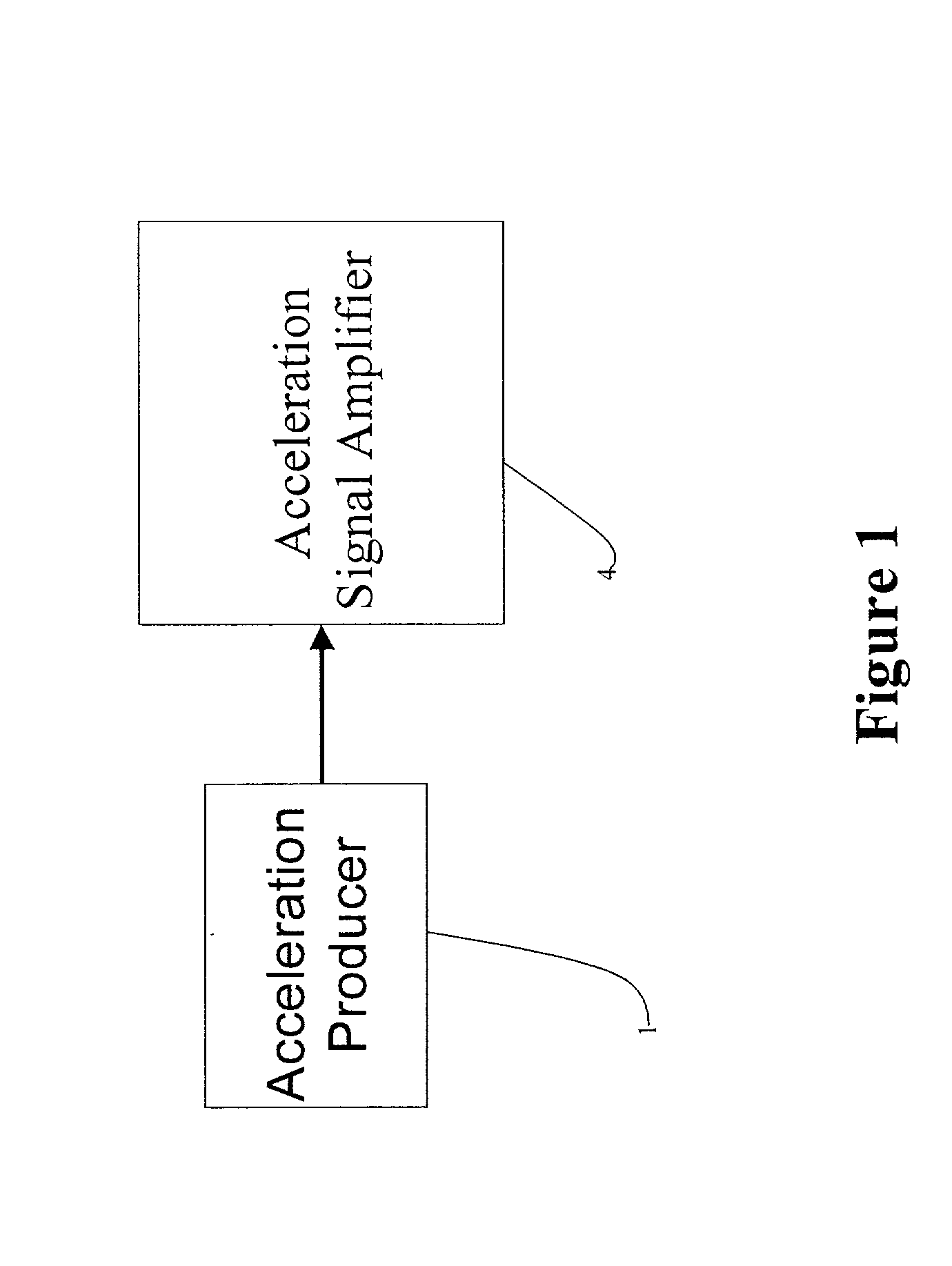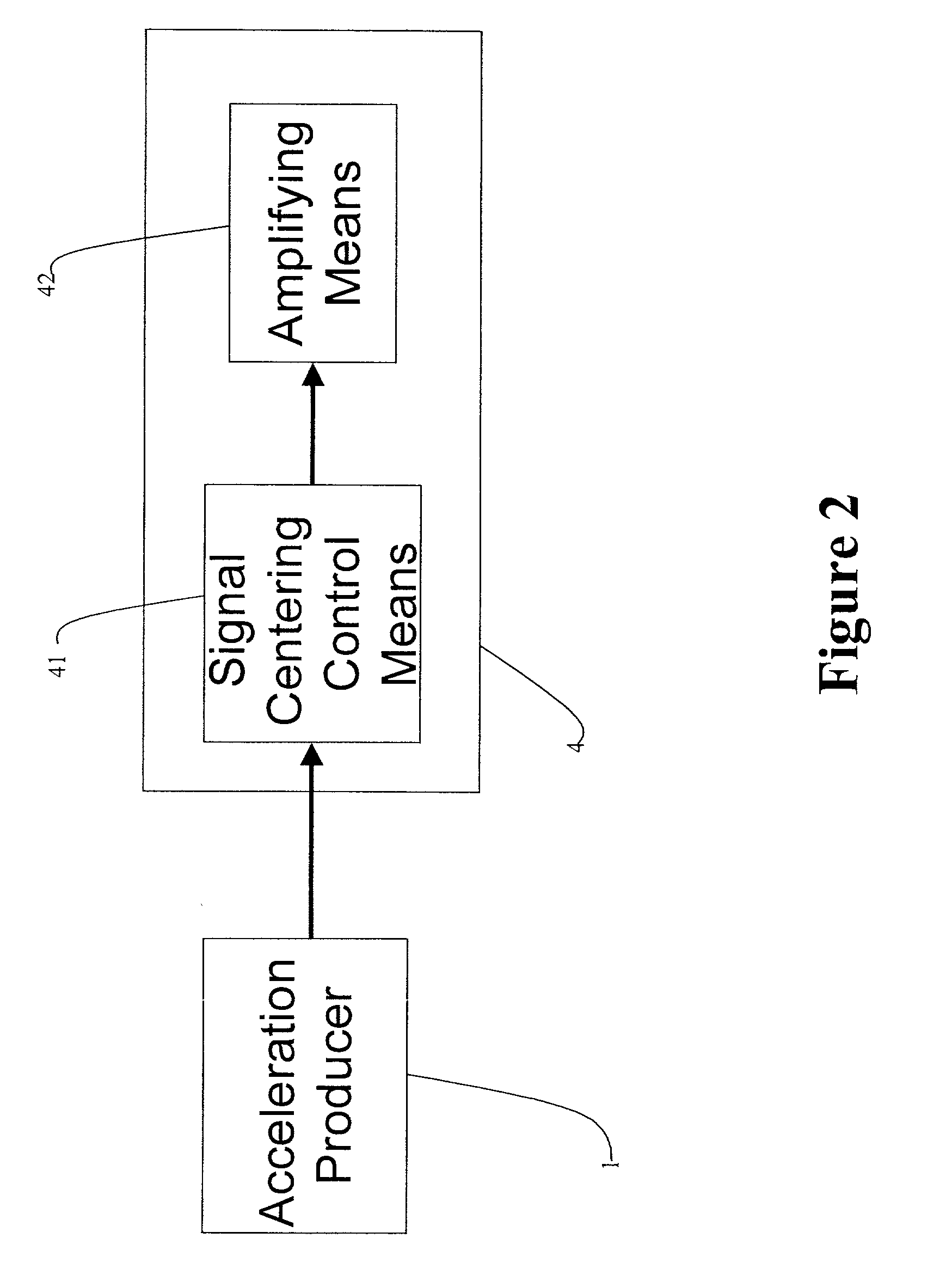Acceleration signal amplifier with signal centering control technology
a signal centering control and amplifier technology, applied in the field of amplifiers, can solve the problems of very weak original output signals of sensors and the near uselessness of op-amps, and achieve the effects of minimizing noise in output signals, high signal/noise ratio, and maximum useful signals
- Summary
- Abstract
- Description
- Claims
- Application Information
AI Technical Summary
Benefits of technology
Problems solved by technology
Method used
Image
Examples
Embodiment Construction
[0047] Today, a broad and diverse sensors or sensor arrays are available to measure almost any conceivable physical quantity. Output signals of a fairly typical sensor or transducer, such as optoelectronic sensors, mechanical sensors, thermal sensors, and magnetic sensors, etc., can be expressed as
[0048] Output signals=useful signals+noise
[0049] An amplifier, a device, is generally implemented by an analog circuit, which is designed to increases the voltage, current, or power of an electric signal. Amplifiers are commonly used in sensor based systems, wireless communications and broadcasting, and in audio equipment of all kinds. According to amplifier functions and objectives, most amplifiers can be categorized as
[0050] Weak (small) signal amplifiers
[0051] Power amplifiers.
[0052] A weak signal amplifier is designed to handle exceedingly small input signals, in some cases measuring only a few nanovolts (units of 10.sup.-9 volt). Weak signal amplifiers are used primarily in sensor sys...
PUM
 Login to View More
Login to View More Abstract
Description
Claims
Application Information
 Login to View More
Login to View More - R&D
- Intellectual Property
- Life Sciences
- Materials
- Tech Scout
- Unparalleled Data Quality
- Higher Quality Content
- 60% Fewer Hallucinations
Browse by: Latest US Patents, China's latest patents, Technical Efficacy Thesaurus, Application Domain, Technology Topic, Popular Technical Reports.
© 2025 PatSnap. All rights reserved.Legal|Privacy policy|Modern Slavery Act Transparency Statement|Sitemap|About US| Contact US: help@patsnap.com



